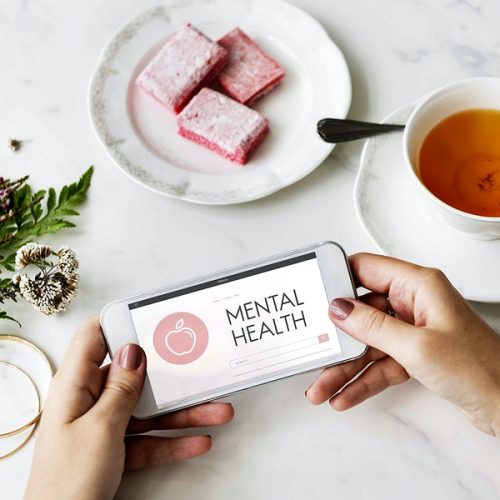Remote work has become more and more popular as we evolve from the traditional workplace. According to a Forbes article, 12.7% of Americans are working remotely as of 2023. And it isn’t surprising why employees are making this move in the first place.

Source: pexels.com
Remote workers working from home has many benefits, such as improved employee retention and staff motivation. You can also maintain a healthy social life while staying on top of your workload when you choose to work from home. However, there are still some challenges that may occur when working remotely.
In this article, we discuss the positive and negative impacts of working from home on your social life. We also share some strategies you can implement to make sure working from home doesn’t hinder you from having a healthy professional social life.
Positive Impacts Of Working From Home On Social Life
Working from home allows people to devote more time and energy to their priorities, including their social life. Many employee’s social lives can improve when working from home. It provides benefits such as:
More Time available For family And Friends
In addition to being able to work in the comfort of your own home, one of the advantages of working from home is that you have more time available for family and social circle.

Source: pexels.com
Here are other ways how working from home can impact your social life:
-
- You don’t need to apply for work leave to attend important gatherings. Instead, you can adjust your work hours to accommodate your attendance without compromising your workload. It is a fantastic way to have social activities, engage in a community, and talk and meet new people.
- You can afford to be more hands-on in taking care of your household. Morning and evening routines can be less hectic and hurried, especially if you are preparing your children to go to school or bed. Working from home also significantly reduces support care costs.
- You can form stronger bonds with your family and friends. There is never enough time to spend with your family and friends. When working from home, you can prioritize your relationships with them and give them the energy and attention they deserve.
- Working from home can help you save more. More time isn’t the only resource that you may benefit from with remote work. Working from home can help families save money on traditional work expenses. Re-allocating money from gas and work clothes can allow you to spend more on vacations and quality time with loved ones. You can even spare time for book clubs that interest you, engage in game nights, and spend time making friends.
Reduction In Commuting Time And Stress
Commuting stress negatively affects your work productivity and your mental and physical health, making it difficult to keep up with a healthy social life. It can be difficult to devote time and energy to social engagements when you’re too busy worrying about how you can get to the office.
When you work where you live, you are no longer tied to going and returning from work in the office for extended periods. Instead of spending at least 30 minutes commuting, you can work from home and get started at your job without encountering the commuting stress. You can skip the long lines, traffic congestion, and the overall noise and stress regular commuting brings.
Increased Flexibility In Scheduling
A flexible schedule can accommodate your career and social life’s needs and expectations. Working from home allows you to have more control over your time and schedule, enabling you to spend it in the way you prefer.
Making sure your schedule meets your personal and professional goals can help you be more productive in both your career and social life. You can also work outside your home – at libraries, a local coffee shop, and more, depending on where you feel most productive. Avoid spending too much time on social media or locking yourself in the house. It would be nice to talk with a friend, join a community, and take advantage of your network group that shares the same interests as you. Interact with people as much as you can and be out in the world.
Flexible work schedules can also help you attain work-life balance by allowing you to shift hours according to your needs. Instead of being stuck in the office during lunchtime, you can spend your break doing other activities, such as a ten-minute workout or a brisk walk outside.
Fostering these healthy habits can change your mindset and help you build the social life you want.
Challenges Of Working From Home On Social Life
Everyone’s work-from-home experience is unique. While others may flourish with working from home, some may find it challenging to balance their social life and remote work. Working from home can present challenges to one’s social life, such as:
Isolation And Loneliness
Working from home can be disadvantageous to a robust social life. A recent Harvard Business Review article discussed how remote work can illicit feelings of isolation and loneliness.
Here are a few reasons why you may experience feelings of withdrawal and decreased enthusiasm when working from home:
-
- Limited face-to-face interactions. Instead of simply tapping your co-worker’s shoulder or meeting in person, you will instead message or meet with them online.
- Reduced opportunities for interacting with your office team. Casual networking opportunities can become difficult to come by when everyone is stuck in conference meeting calls all day.
- Less feedback. Due to the absence of in-person supervision, working from home can also hurt your work performance. It can also be challenging to build a professional social life.
- Feeling cooped up at home. Working from home may decrease your chances of going outside and enjoying various activities due to the responsibilities and workload you have.
Difficulty Separating Work And Personal Life
Easy access to work by working from home can have its downsides. You may find it difficult to balance your work and personal social responsibilities when you work and live in the same place.

Source: pexels.com
Blurred boundaries in your work and personal real life can lead to negative results. You may find yourself checking your emails while being in a personal social gathering. You can also get distracted during online work meetings when you have relatives or close friends over in your home.
Struggling to balance your work and personal responsibilities can lead to intrusive work hours and a neglected social life on both personal and professional ends.
Strategies To Maintain Social Connections While Working From Home
Working from home doesn’t mean sacrificing a healthy social life. There are many ways to combat the social challenges that arise when working from home, including:
A. Virtual Happy Hours
You can build positive relationships with your co-workers through virtual happy hours. Virtual happy hours are team-building activities you can do through online conference platforms.
These fun activities boost engagement and encourage positive communication skills. Staying connected with co-workers is also easier with implementing virtual happy hours, even if the team doesn’t meet frequently.
If you want to organize virtual happy hours with your colleagues, you can either schedule a specific time slot during the work week or start the online meetings with these fun activities. These ice-breakers can be as short as five to fifteen minutes, making them perfect for getting the conversation flowing between team members before diving into work.
B. Online Social Groups
Online social groups can help you be more social and energize your work environment remotely. It also helps in reducing feelings of isolation at work. You can create online social groups in the workplace by:
- Scheduling brief calls with co-workers during lunch breaks can help maintain your routine at home while enjoying social interaction.
- Creating themed group chats within your department, such as those for sharing pet pictures or news, can foster positive relationships in the workplace or coworking spaces.
- Creating a fitness group with your co-workers can help you attain your physical goals through scheduled fitness time. It can also improve your fitness experience as you can exchange workout tips and more.
- Organizing virtual movie screenings can help you and your colleagues connect and have conversations beyond usual work matters.
C. Outdoor Activities
Luckily, there are many opportunities to meet with your team members from work, even when working from home even when you feel isolated.
Outdoor activities can ease social challenges at work. These activities can give you a chance to connect with your colleagues in a more relaxed setting and, at the same time, help you take a break from work.
You can try scheduling physical activities such as hiking and paintball. These activities can get your heart pumping and the conversation flowing between you and your co-workers. If you want a relaxed networking and catching-up setting, picnics at the park and afternoon lunches outside can be more suitable.
To Wrap Up
Our social life can start to look different when we choose to work from home.
Working from home has many benefits, such as flexibility and reduced commuting. However, it can also lead to isolation from your co-workers and negatively impact many aspects of your life. It is important to consider how these impact your social life before pursuing becoming a remote worker. Working alone can also make some like minded people nervous or worry about performance, so it’s also a good idea to learn some tips to manage work anxiety.
Finding a balance between work and personal life can ultimately help you build the social life you want. If you choose to work from home, it is essential that you implement healthy strategies that can help you maintain and improve your social life.
Frequently Asked Questions (FAQ)
How can I have a social life while working from home?
How can I get social interaction when working from home?
How do you make friends when you work from home?
How do you balance work and life when working from home?
How do you manage social life and work-life?
How can social isolation be prevented when working from home?
How can I be social with real people I work with?
Does remote work lack social interaction?
What is social interaction in the workplace?
How do I enjoy working from home?
How do introverts make friends at work?
How do people make friends outside of work?
What are the advantages of working from home?
Why is it important to have a balance between your work life and home life?
How do you balance work and your personal life during busy times?




































